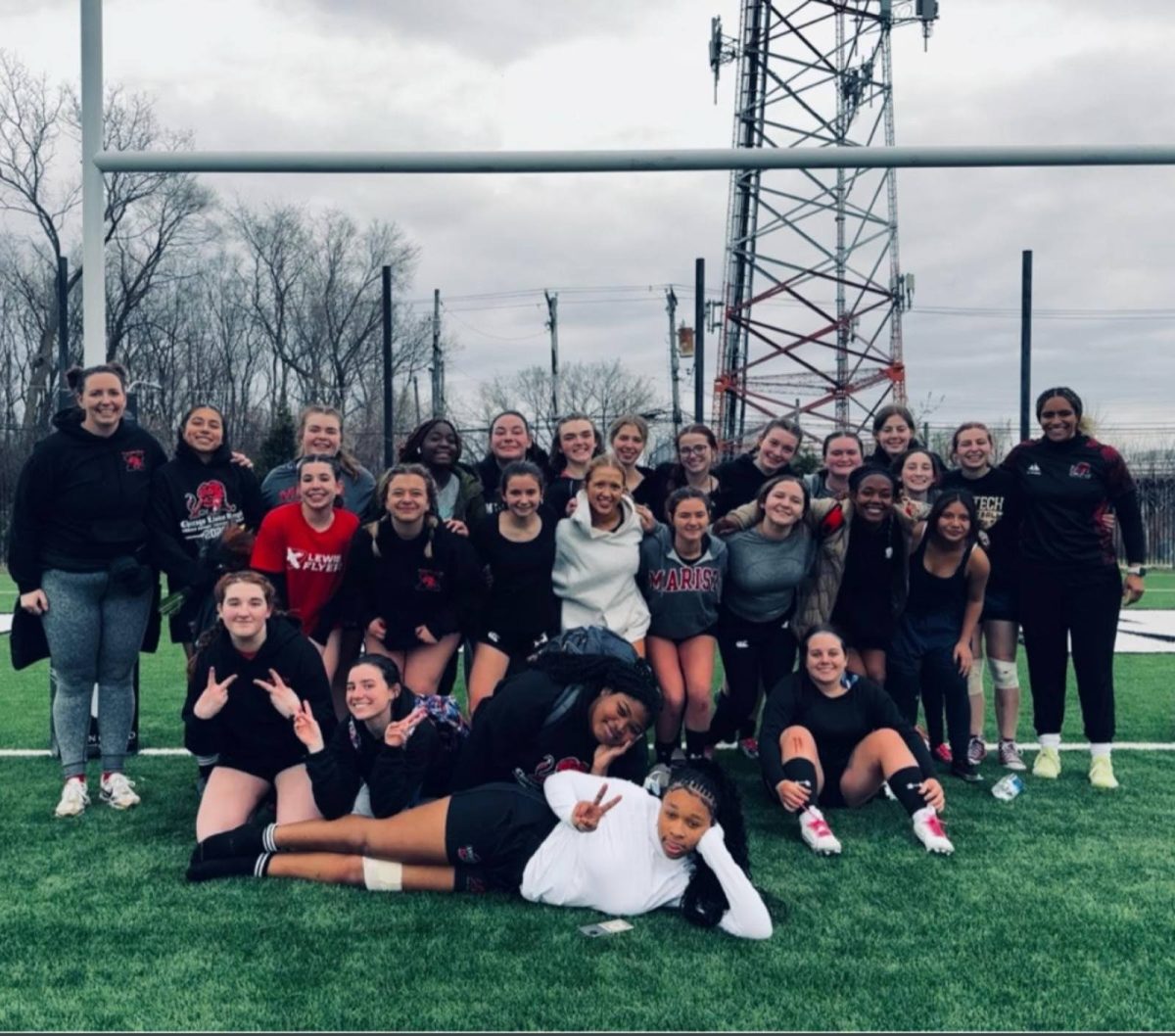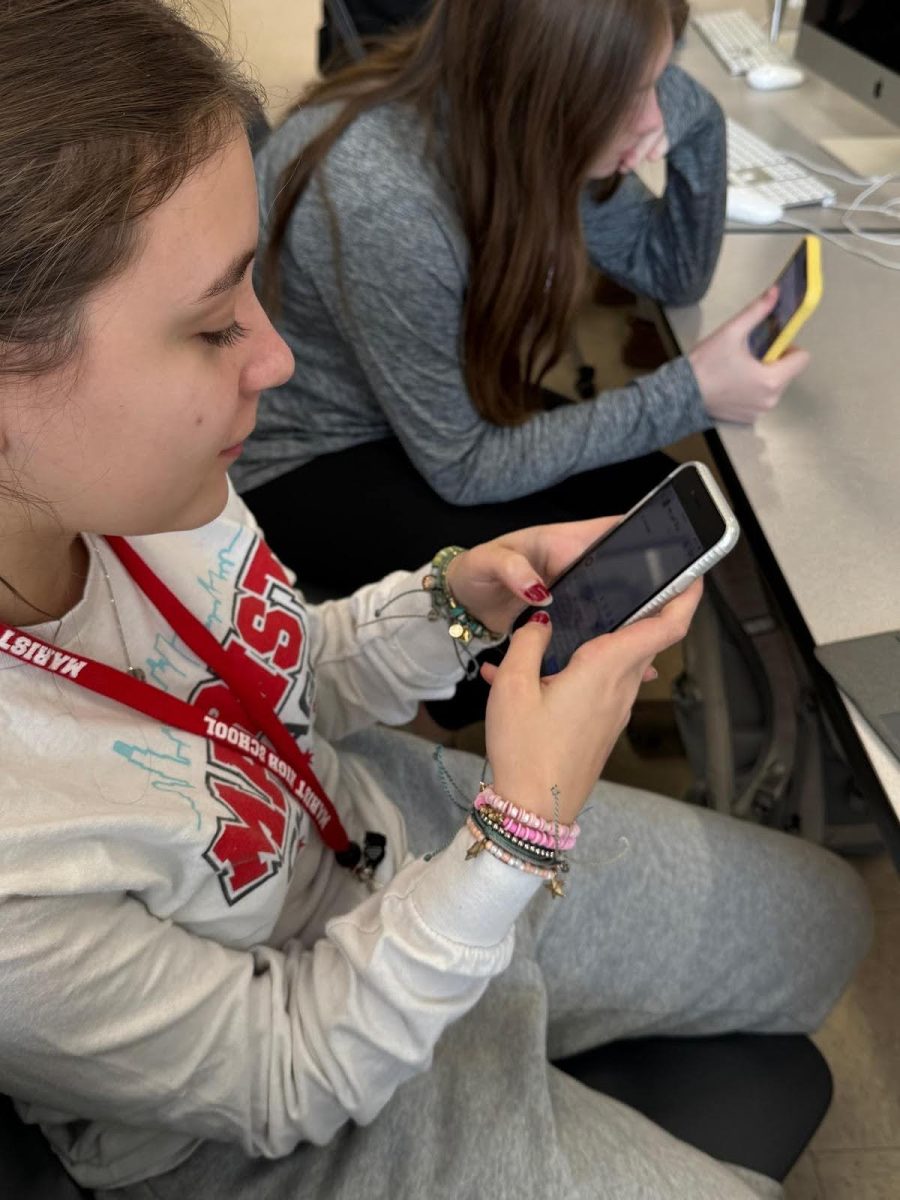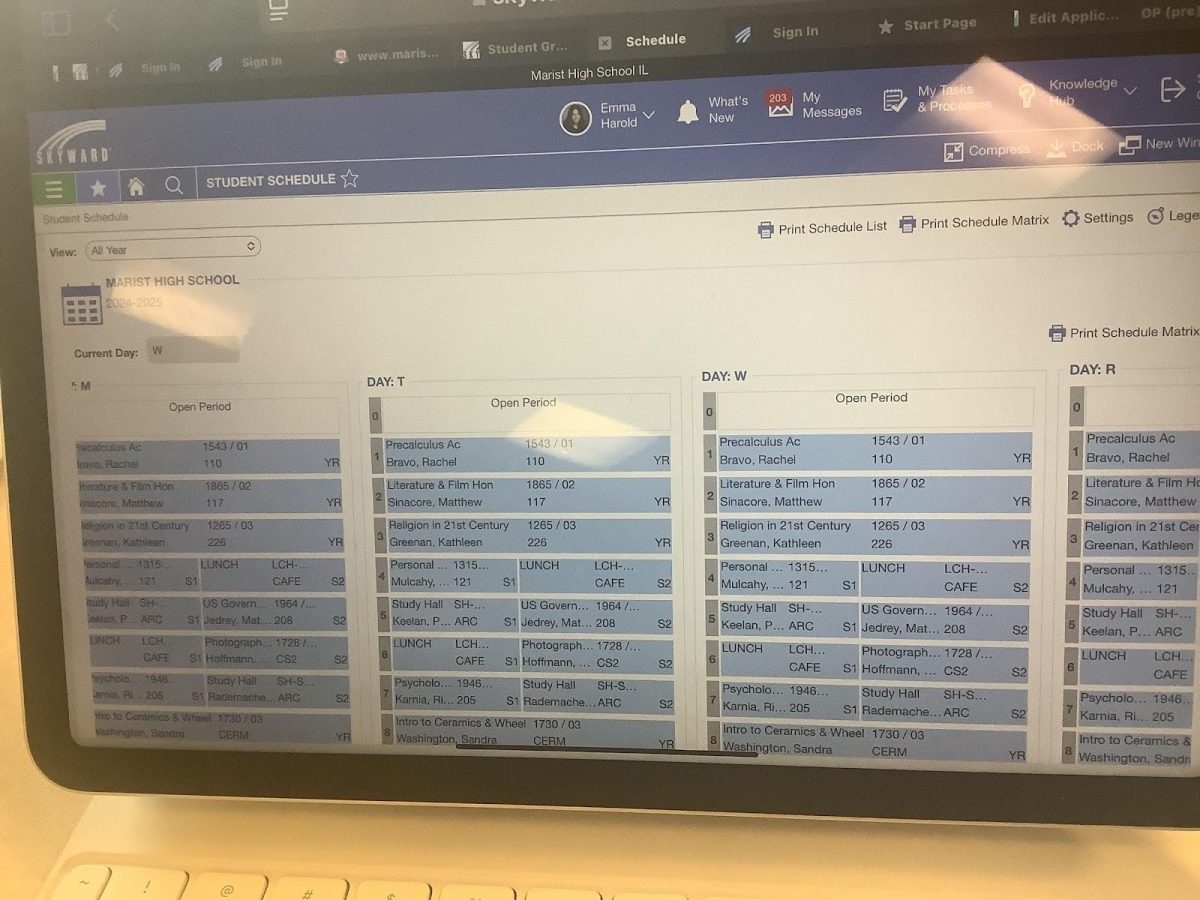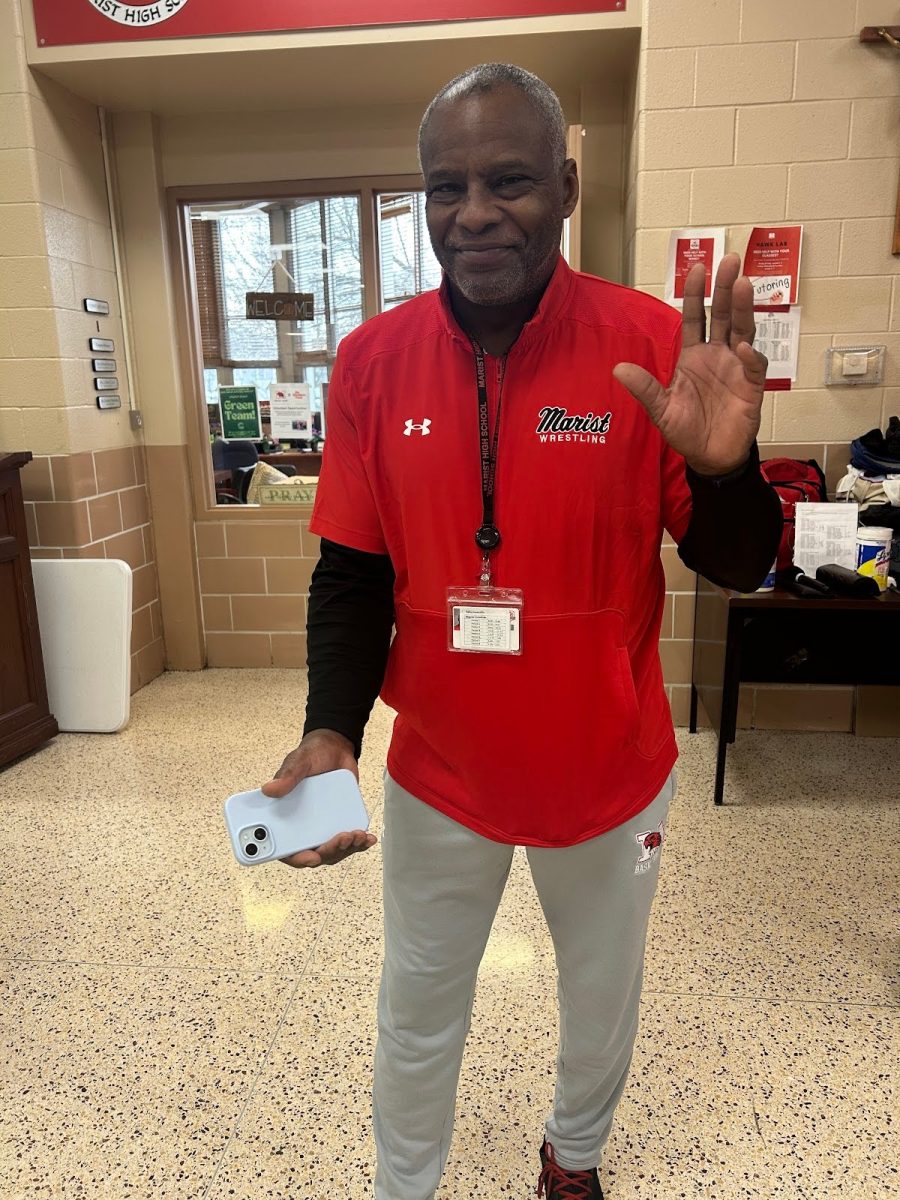In a time when social media has become a part of daily life, the way people make connections has changed drastically. Friend requests, once only coming from close friends and acquaintances, now can be sent from strangers and possible predators. While in some cases this situation can be rewarding, it also poses risks that users should consider before pressing the “accept” button.
“As long as the relationship is safe, there are no plans to meet up, and it’s positive, it could be beneficial,” said Marist Counselor Tasia Buford-Howell.
It is widely believed that all friend requests are dangerous, which isn’t always the case.
“My cousin is pretty shy and is not very social. One day, a girl followed him on Instagram,” said freshman Mady Tracy. “Immediately, he could not stop talking about her, and we all thought he was being catfished.”
As a relationship progressed, family members started to worry.
“It turns out she really was the girl in the pictures, and they have been together for about six months,” said Tracy.
Not only relationships can form from the press of a button, but so can friendships.
“I met one of my best friends online. Thank God I decided to accept,” said freshman Peyton Polanek.
However, stranger friend requests do not always end up in a positive outcome.
“My daughter, who is 14, friended someone on social media, whom she didn’t know. She saw a picture and assumed it was another kid her age,” said teacher Susan Carlson. “We ended up getting contacted by this person in the middle of the night, a couple of weeks ago. It was kind of a creepy, eerie experience,” said Carlson.
The worst part is, the truth is not always transparent.
“We realized we didn’t know where this person was, who he was, or if he was anything like his profile,” said Carlson.
Unfortunately, predators know what to say and how to say it.
“Young people are seeking connections that they may not get through school or sports teams, especially as it relates to dating. Unfortunately, there are predators out there who are very skilled at being able to lure young people in,” said Buford-Howell.
Even as adults, the dangers still stand.
“I just wouldn’t, I’m too skeptical, I’m a skeptical person. I hear about catfishing, and I just think it’s unsafe. I feel there are safer ways to make connections with people,” said Buford-Howell.
Buford-Howell has advice for how to navigate online relationships.
“Be transparent with a trusted adult about connecting with someone online and reflect on what the intent is,” said Buford-Howell. “Be extra safe, like ensure that it is a peer you’re talking to, if anything starts to feel odd, run. Recognize the red and yellow flags,” said Buford-Howell.
Eliminating the problem altogether is always an option.
“I would say that minors should not accept friend requests from strangers. Do not add anyone back unless you have talked to them and know exactly who they are,” said Carlson.
Most importantly, be smart.
“I would say make sure you know what you’re getting into if you are going to add someone back,” said Tracy.




























